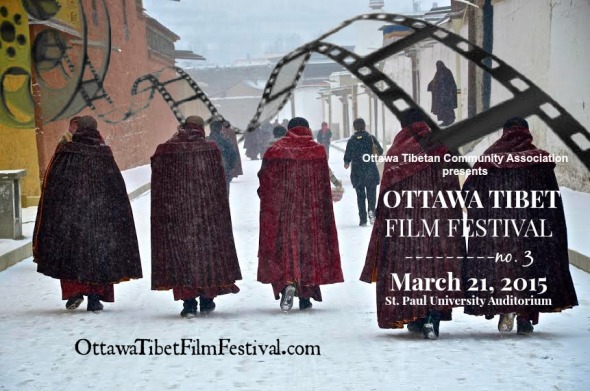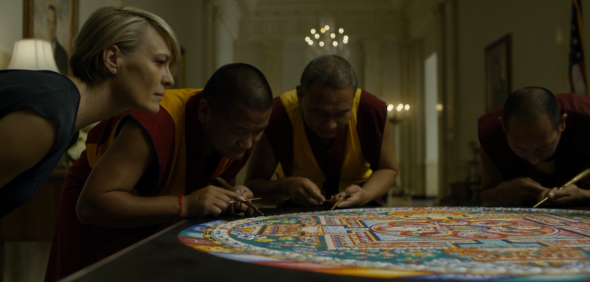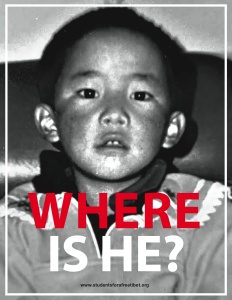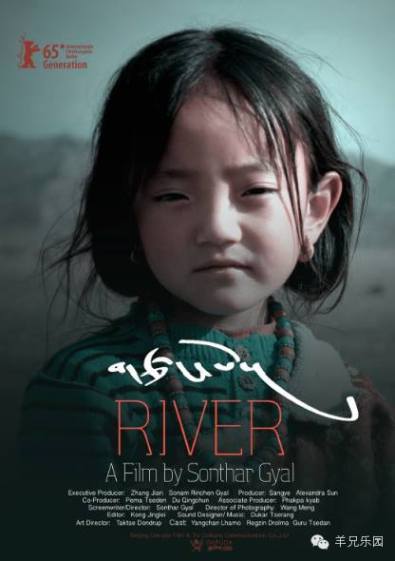Films at the 4th Dharamshala International Film Festival
Posted: November 8, 2015 Filed under: Cinema, Film, Film Festivals, Uncategorized, Video Leave a comment
The fourth edition of the Dharamshala International Film festival is underway (Nov 5-8) in Dharamshala, a town in North India, known for being home to the Dalai Lama and thousands of Tibetan exiles.
In the last four years DiFF has fast established itself as one of the fastest growing and most interesting film festivals in India and in that region of Asia. Started by filmmaker couple Ritu Sarin and Tenzing Sonam, their film selection focuses mostly on indies from India and rest of the world. The festival showcases excellent selection of recent independent films from all over the world, featuring both narratives and documentaries. The festival also hosts panels and discussions with filmmakers and artists who are invited to this otherwise quiet town in the hills.
The diversity and the creativity of the festival programming rivals any major International film festival, not just in India but anywhere in the world.
For this year’s full program, visit http://www.diff.co.in
Some notable films this year are:
The Wolfpack
Titli
The Concrete Night
The Look of Silence
The Tale of Iya
Zero Motivation
Wild Women – Gentle Beasts
Heart of a Dog, a film by Laurie Andersen
Posted: November 4, 2015 Filed under: Cinema, Film, Performance Art, Video | Tags: Laurie Anderson Leave a comment
2 Films to Watch on Mother’s day
Posted: May 10, 2015 Filed under: Cinema, Film | Tags: Bong Jun Ho, iTunes, Mommy Film, Mother Film, Mother's Day, Xavier Dolan 1 CommentMother’s day is upon us and if you are looking for two essential films to watch on this special holiday, here are two must-watch recommendations.
1. Mother 마더 2009 by Bong Jun Ho (South Korea)
Hye-ja is a single mom to 27-year-old Do-joon. Her son is her raison d’être. Though an adult in years, Do-joon is naïve and dependent on his mother and a constant source of anxiety, often behaving in ways that are foolish or simply dangerous. Walking home alone one night down a nearly empty city street, he encounters a young girl who he follows for a while before she disappears into a dark alley. The next morning, she is found dead in an abandoned building and Do-joon is accused of her murder. Thanks to an inefficient lawyer and an apathetic police force, Do-joon’s case is quickly closed, but his mother refuses to let this be the end of the story.
2. Mommy 2014 by Xavier Dolan (Canada)
A feisty widowed single mom finds herself burdened with the full-time custody of her unpredictable 15-year-old ADHD son. As they struggle to make ends meet, Kyla, the peculiar new neighbor across the street, offers her help. Together, they find a new sense of balance, and hope is regained.
Top 7 Tibet and Art related events to attend this March.
Posted: March 4, 2015 Filed under: Art Exhibition, Asian Cinema, Cinema, Exhibition, Film, Film Festivals, Music, New York, Tibetan Contemporary Art, Tibetan Film, Tibetan Music | Tags: Drepung Monks, House of Cards, The Flaming Lips, Tibet House Leave a comment1. Tibet House Benefit Concert – Music Concert, NYC, USA, March 05

This year’s Annual Tibet House US Benefit Concert, celebrating Tibetan new year – Year of the Wood Sheep, and 25 years of Tibet House US, will feature a line-up of some of the world’s most impressive musicians and artists. To be held at it’s usual venue, Carnegie Hall, Artistic-Director and composer Philip Glass will open one of New York’s most loved annual music events. Other performers include The Flaming Lips, Patti Smith and band with Jesse Paris Smith, Tenzin Choegyal, Artist Laurie Anderson and many more. Monks from the Drepung Monastery, some of whom were recently featured in House of Cards Season 3 will also present an invocation at the concert.
2. Bringing Tibet Home – Film Screening, Mexico City, Mexico, March 10

Award winning documentary film, Bringing Tibet Home will be screened at multiple locations in Mexico. The film opens at the Cinemex WTC in Mexico City on March 10 and will travel to other cities including Cuernavaca, Querétaro, Monterrey, Puebla and Morelia. The film tells the story of Tibetan artist Tenzing Rigdol and his 2011 art installation in Dharamsala, India, where he made possible, a symbolic re-union between Tibetan exiles and their land using 20 tones of smuggled soil from Tibet.
3. Night of Music and Resistance with Tenzin Choegyal – Music Performance, NYC, USA, March 10

Australia based renowned Tibetan musician Tenzin Choegyal will perform live at the Students for a Free Tibet office in New York City. This month he will also perform at the Carnegie Hall Tibet House Benefit Concert.
4. A Brush With Reality – Art Exhibition, NYC, USA, March 13

Tara Lobsang is a Tibetan artist and master calligrapher born and raised in Tibet, educated in India, and currently living in New York. In A Brush With Reality, Lobsang wields his sweeping brushstrokes and spiritual faith to delve into a range of human emotions, cosmological landscapes and metaphysical truths. Opening March 13.
5. Transcending Tibet – Art Exhibition, NYC, USA, March 18

Representing thirty emerging and established artists from the Tibetan Plateau and around the world, Transcending Tibet is a landmark exhibit of newly commissioned work. Mining the visual and material history of both Tibet and the modern world – re-appropriating iconography, playing boldly with everything from acrylic and oil to mirrors illuminated with LEDs – these artists offer a varied and nuanced look at Tibetan identity and culture today
6. Ottawa Tibet Film Festival, Ottawa, Canada March 21

The Ottawa Tibet Film Festival (OTFF) will be hosting its 3rd annual film festival March 21, 2015 at the St. Paul University Amphitheatre! The festival will be an opportunity for the Ottawa region to experience and learn more about the people, culture and land of Tibet through a series of feature-length movies and documentaries. Showcased films include, among others, Bringing Tibet Home, Old Dog, Tibet in Songs, Milarepa…
7. Watch Season 3 of HOUSE of CARDS, Netflix, March

In episode 7 of House of Cards, Season 3, Tibetan monks share the White House with the Underwoods. The monks spend a month inside the White House calmly building a Sand Mandala while the President and the First Lady attempts at amending their fragile relationship whilst also at the same time trying to stay at the top of their game. A unique yet beautiful episode ripe with symbolisms, the story shuffles back and forth in time. Nothing is forever. No major spoilers here!
Tibet related film at the Oscars, commentary on on-going erosion of Tibetan culture
Posted: February 9, 2015 Filed under: Asian Cinema, Cinema, Film, Photography, Video 1 Comment
Butter Lamps, a short film directed by Chinese filmmaker Hu Wei is among the films nominated for this year’s Academy Award for Best Live Action Short Film. This 15 minute experimental short is a work of fiction that is tinted with commentary on socio-political issues on the Tibetan plateau resulting from factors that are beyond the control of the Tibetans. The film features real Tibetan nomads as they interact with a photographer who travels the land offering to shoot portraits using various backdrops.
The film is said to be inspired by photographer Michael Nash’s works from Warsaw in 1946, where he went to the war torn region and photographed locals using scenic peaceful backdrops concealing the ruins from the war. Hu Wei’s film was shot between 2010 and 2012. The director, in an interview says,
“I hope to call attention to Tibet and Tibetan culture and traditions that are vanishing due to various reasons. And at the same time, examine the changes of our own culture under the influence of today’s globalization and modernization.”
In 2010, during the director’s first attempt to shoot the film in Tibet, Tibetans refused to work with him when they saw that he wanted to use the Tiananmen Square as a backdrop. The locals thought Hu Wei was making a Chinese propaganda film and did not want to partake. After a scuffle between the locals and the filmmakers, the production didn’t resume until 2012.
In the clip below from the film, Tibetan nomads pose in front of a camera, behind them is the backdrop of Tiananmen Square with it’s famous portrait of Mao. Soon an old Tibetan woman sits on a chair at the center concealing Mao’s portrait and instead holds a portrait of Gedhun Choekyi Nyima, the reincarnation of Panchen Lama, one of Tibet’s most important religious leaders. In 1995, when the boy was just 6 years, The Dalai Lama recognized him as the 11th Panchen Lama but that same year, he and his whole family disappeared from the public eye. Believed to be in Chinese custody, Human rights organizations have often reffered to him as the world’s youngest political prisoner.
Read more about the Panchen lama here: www.freepanchenlama.org
Born in Beijing, China, Hu Wei graduated from La Femis, the National School of Fine Arts in Paris and Le Fresnoy, and now lives and works between Beijing and Paris.
Tibetan film to premiere at the 65th Berlin International Film Festival
Posted: February 5, 2015 Filed under: Asian Cinema, Cinema, Film, Film Festivals, Tibetan Film, Tibetan Filmmakers | Tags: Asian Cinema, Berlin International Film Festival, Generation Kplus, Sonthar Gyal, Tibetan Cinema, Tibetan Film Leave a commentThis year at the 65th Berlin International Film Festival Tibetan filmmaker Sonthar Gyal will premiere his new film Gtsngbo (River) in the section Generation Kplus. Sonthar Gyal, a contemporary of Tibetan director Pema Tseden also hails from Amdo. Formerly a traditional thangka painter, he studied at the Beijing Film Academy. He worked as a cinematographer on several of Pema Tseden’s films including Old Dog(2011). Director Sonthar Gyal’s debut feature The Sun Beaten Path(2011) competed at the The 64th Locarno Film Festival in 2011.
Generation is one of the long running sub-sections of the Berlin International Film Festival focusing on films that speaks to cinematic works that are thematically and aesthetically linked to the experiences of children and young people. The program encloses outstanding children’s and youth films as well as films for all target audiences that are also suitable for young people. Established in 1978, Belinale devotes this competition section to children and youth. Along with adult jurors, the festival will also have Children jury consisting of eleven 12-14 year old kids from Berlin. The highest award in this category will be € 7,500 endowment for the best feature film.
Gtsngbo (River)
SynopsisThe day her father drunkenly crashes his motorbike is when young Yangchan begins to realise that something is wrong with him. In her village on the Tibetan steppe people cannot understand why he does not go and visit her sick grandfather. The old man lives in a cave; he went there to meditate, and is regarded as a holy man. Everyone has been on a pilgrimage to see him. Except her dad, who stubbornly refuses. For this reason people consider him a bad person and the boys in the village make sure that Yangchan knows it. Her mum is pregnant with the next child and just wants some peace but her dad has his reasons for his irreconcilable stance. The family moves their tent to pastures further afield, but the conflict pursues them. Yangchan thinks that nobody understands her. And she does not like the way her mum’s belly is swelling either. She finds love and affection in the shape of an orphaned lamb that she tenderly takes care of and raises. But their problems remain unsolved. A moving story – told entirely from the girl’s point of view – about her father’s deep emotional wound that reignites after many years and pushes the whole family to the edge of a precipice.
Tibet (People’s Republic of China) 2015, 94 min, Tibetan, Director: Sonthar Gyal Cast: Yangchan Lhamo Regzin Drolma Guru Tsedan Kheydrup
Screening Dates in Berlin
-
Wed Feb 11 15:30 Zoo Palast 1 (E)
-
Thu Feb 12 13:30 Haus der Kulturen der Welt (E)
-
Sun Feb 15 14:00 CinemaxX 3 (E)
Tibetan Director Pema Tseden wins co-production deal at the 19th Busan International Film Festival
Posted: October 10, 2014 Filed under: Asian Cinema, Cinema, Film, Film Festivals, Tibetan Film, Tibetan Filmmakers | Tags: Asian Cinema, Film, Pema Tseden, Tibetan Cinema, Tibetan Film Leave a commentTibetan director Pema Tseden’s new film project “The Killer” is among the 9 out of 30 projects that were awarded the Asian Project Market (APM) prizes at the 19th Busan International Film Festival in South Korea. The award titled “Heyi Film & Youku Tudou Award” is sponsored by Chinese company Youkou Tudou who will invest $30,000 in this project.
Director Pema Tseden known for films like, Old Dog, The Search and the Silent Holy Stone is also featured in A Window to Asian Cinema section of this year’s Busan International Film Festival with his Shanghai prize winner, The Sacred Arrow.
The Sacred Arrow – This film is a tale of friendship and love of Tibetans through the thousand-year-old archery tradition. According to Amdo legend, Damo and Lhalong villages hold an annual archery competition that determines which village keeps The Sacred Arrow for one year. Dradon of the Lhalong village is enraged when he unfortunately loses by a head to Nyima of the Damo village. Overcome with jealousy and a sense of inferiority, Dradon realizes Nyima is in love with his younger sister and continues to interfere. Then one day, a local Tibetan government-sponsored International Archery Competition is held, and there Dradon and Nyima meet once again. The Tibetans pure and genuine friendship and love unravels against the breathtaking Tibetan highlands. (KANG Naeyoung, BIFF)



